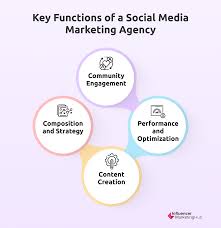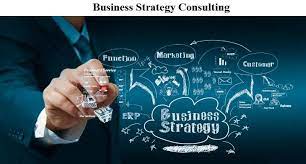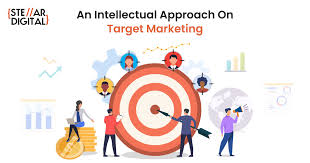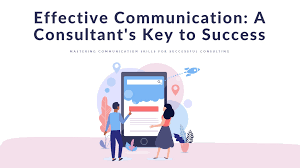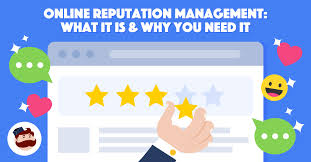Mastering the Art of Digital Content Generation: A Guide to Engaging Your Online Audience
The Power of Digital Content Generation
In today’s digital age, the creation of engaging and relevant content is more important than ever. With the vast amount of information available online, businesses and individuals need to cut through the noise and capture the attention of their target audience. This is where digital content generation plays a crucial role.
Digital content generation involves creating various forms of content, such as articles, videos, infographics, and social media posts, to connect with an online audience. By producing high-quality and valuable content, businesses can attract, engage, and retain customers in a competitive online landscape.
One of the key benefits of digital content generation is its ability to build brand awareness and credibility. When businesses consistently share informative and interesting content that resonates with their target audience, they establish themselves as industry leaders and experts in their field.
Furthermore, digital content generation can drive website traffic and improve search engine rankings. Search engines favour websites that regularly publish fresh and relevant content. By creating a steady stream of quality content optimised for search engines, businesses can increase their visibility online and attract organic traffic.
Moreover, digital content generation allows businesses to engage with their audience on a more personal level. Through storytelling, visual elements, and interactive features, businesses can create a connection with their customers and foster brand loyalty.
It’s important for businesses to develop a comprehensive digital content strategy that aligns with their goals and target audience. By understanding what type of content resonates with their audience and how to distribute it effectively across various online platforms, businesses can maximise the impact of their digital content generation efforts.
In conclusion, digital content generation is a powerful tool for businesses looking to enhance their online presence, engage with their audience, and drive meaningful results. By investing in quality content creation tailored to their target market’s needs and preferences, businesses can unlock new opportunities for growth and success in the digital realm.
Understanding Digital Content Creation: Top 9 FAQs Answered
- What is a digital content creator?
- What does a digital content creator do?
- What is meant by digital content?
- How do I start digital content creation?
- What is meant by digital content creation?
- What generate digital content?
- What is content creation in digital media?
- Why is digital content creation important?
- How do you create quality digital content?
What is a digital content creator?
A digital content creator is an individual or entity responsible for producing various forms of online content, such as articles, videos, social media posts, graphics, and more. They play a crucial role in engaging audiences, building brand presence, and driving online visibility. Digital content creators possess skills in storytelling, creativity, and multimedia production to craft compelling and relevant content tailored to their target audience. By leveraging digital platforms and tools, they aim to deliver valuable information, entertainment, or inspiration to connect with users in the digital space effectively.
What does a digital content creator do?
A digital content creator plays a pivotal role in crafting engaging and impactful online materials to connect with target audiences. Their responsibilities typically involve conceptualising, producing, and distributing various forms of content, such as articles, videos, social media posts, and infographics. Digital content creators are adept at understanding audience preferences and trends to develop content that resonates with viewers. They often collaborate with other team members, such as graphic designers and marketers, to ensure that the content aligns with the overall brand strategy. Ultimately, a digital content creator aims to drive audience engagement, enhance brand visibility, and deliver valuable insights through compelling storytelling and creative expression in the digital landscape.
What is meant by digital content?
Digital content refers to any form of information, media, or data that is created and distributed through digital channels such as websites, social media platforms, emails, and mobile apps. This content can take various formats, including text, images, videos, infographics, podcasts, and interactive elements. In the context of digital content generation, the term encompasses all the materials produced to engage with an online audience and convey a message or information effectively. Creating compelling and relevant digital content is essential for businesses and individuals looking to connect with their target audience in the digital landscape and drive engagement, brand awareness, and ultimately achieve their communication goals.
How do I start digital content creation?
To embark on digital content creation, it is essential to begin with a clear understanding of your target audience and objectives. Start by defining your goals and identifying the key messages you want to convey through your content. Conduct thorough research to gain insights into your audience’s preferences, interests, and online behaviour. Choose the most suitable formats for your content, such as articles, videos, or infographics, based on your audience’s preferences and the nature of your message. Invest in quality tools and resources to produce professional-looking content that resonates with your target audience. Lastly, establish a consistent publishing schedule to maintain engagement and build a loyal following over time.
What is meant by digital content creation?
Digital content creation refers to the process of developing and producing various types of digital material, such as articles, videos, images, infographics, and social media posts, with the aim of engaging and informing an online audience. It involves crafting content that is tailored to the preferences and interests of a target audience and is designed to be shared across digital platforms. Digital content creation encompasses not only the generation of text and multimedia but also the strategic planning and execution of content that aligns with a brand’s goals and values. By creating compelling and valuable digital content, businesses can enhance their online presence, build brand awareness, drive traffic to their websites, and ultimately connect with their audience in a meaningful way.
What generate digital content?
In the realm of digital content generation, the question of what generates digital content often arises. The creation of digital content is driven by a variety of sources, including creative ideas, market research, industry trends, and audience insights. Content creators draw inspiration from diverse sources to develop engaging and relevant content that resonates with their target audience. Additionally, technology plays a crucial role in generating digital content, with tools and platforms enabling the creation of various forms of content such as articles, videos, podcasts, and social media posts. Ultimately, a combination of creativity, data-driven insights, and technological resources come together to fuel the continuous generation of impactful digital content in today’s dynamic online landscape.
What is content creation in digital media?
Content creation in digital media refers to the process of developing and producing various forms of content specifically tailored for online platforms. This includes creating articles, videos, images, infographics, social media posts, and more to engage with a target audience in the digital space. Content creation in digital media involves not only crafting compelling and relevant material but also strategically distributing it across different online channels to reach and connect with the intended audience effectively. By focusing on creating valuable and engaging content that resonates with users, businesses can enhance their online presence, build brand awareness, drive traffic to their websites, and ultimately achieve their marketing goals in the digital landscape.
Why is digital content creation important?
In the digital age, the significance of digital content creation cannot be overstated. It serves as a vital means for businesses to connect with their target audience, build brand awareness, establish credibility, drive website traffic, and engage customers on a personal level. By crafting compelling and relevant content tailored to the preferences of their audience, businesses can differentiate themselves in a crowded online landscape, enhance their visibility in search engine results, and foster long-term relationships with customers. Ultimately, digital content creation is essential for businesses seeking to stay competitive, relevant, and impactful in today’s fast-paced digital world.
How do you create quality digital content?
Creating quality digital content involves a strategic approach that starts with understanding your target audience and their preferences. Begin by conducting thorough research to identify trending topics, keywords, and formats that resonate with your audience. Craft compelling and informative content that provides value to your readers, whether it’s through engaging storytelling, visually appealing graphics, or interactive elements. Ensure your content is well-researched, accurate, and tailored to address the needs and interests of your audience. Regularly review and refine your content based on performance metrics and feedback to continuously improve its quality and relevance. By prioritising audience engagement, authenticity, and value in your digital content creation process, you can effectively create high-quality content that drives results and resonates with your target audience.



